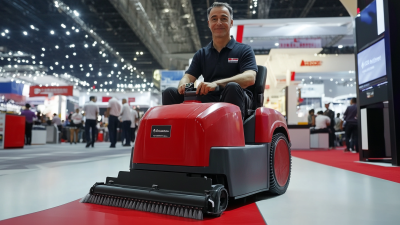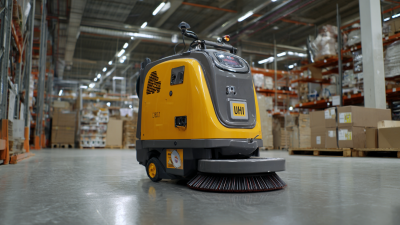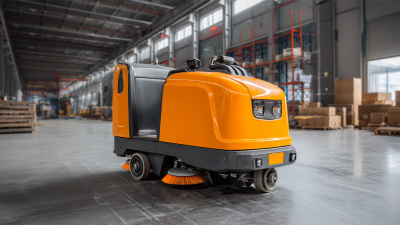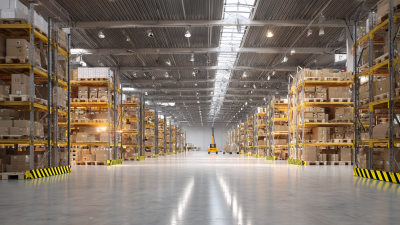Inquiry
Form loading...
In the fast-paced world of logistics and warehousing, maintaining a clean and safe environment is imperative for productivity and worker safety. According to industry expert John Smith, a leading consultant in warehouse operations, "Choosing the right warehouse floor cleaner is not just about cleanliness; it's about creating a safer and more efficient workspace." His insights underscore the critical role that effective cleaning solutions play in operational success.
As businesses strive to uphold hygiene standards and ensure safety protocols, selecting the best warehouse floor cleaner becomes a priority. With a myriad of products on the market, it can be overwhelming to navigate through the options. This guide aims to simplify the decision-making process by highlighting the top 10 warehouse floor cleaners available today, tailored to meet the diverse needs of the industry. By understanding the features, benefits, and limitations of each product, you can make an informed choice that aligns with your operational goals.
Investing in the right warehouse floor cleaner not only enhances the appearance of your facility but also contributes to the longevity of your flooring and the overall health of your workforce. In the following sections, we will explore the essential factors to consider when choosing a floor cleaner, ensuring that your business achieves the highest standards in cleanliness and safety.
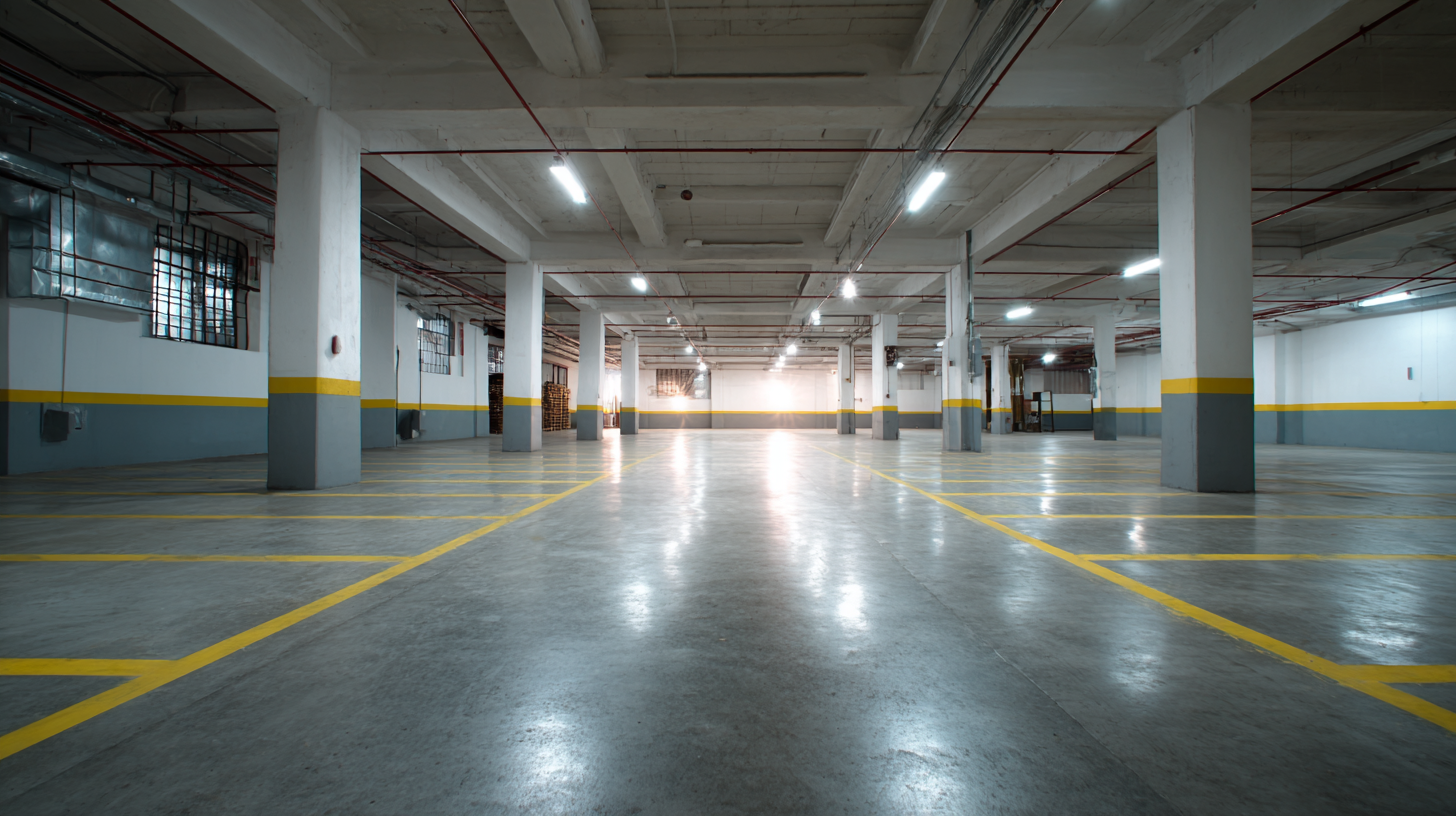
Clean warehouse floors are not just a matter of aesthetics; they play a crucial role in maintaining operational efficiency and safety in the workplace. According to industry statistics, on average, slip and fall incidents account for a significant percentage of workplace injuries, with many of these incidents occurring due to unclean or improperly maintained flooring. Additionally, a clean environment can enhance productivity, as employees can navigate the space without obstruction or distractions caused by dirt and debris.
Maintaining cleanliness in warehouses can also reflect positively on a company's overall image. Statistics reveal that businesses with well-maintained facilities tend to attract more clients and retain employees longer, as cleanliness is often associated with professionalism and attention to detail. Investing in the right warehouse floor cleaner not only ensures compliance with safety regulations but also contributes to a healthier work environment, which is vital in reducing the turnover rate and fostering employee satisfaction.

When selecting a warehouse floor cleaner, understanding the different types available is crucial to meeting your business's specific needs. One of the most common options is the scrubber-dryer. These machines combine scrubbing and drying in a single pass, making them ideal for large areas that require efficient cleaning. They are particularly beneficial for facilities needing to maintain high standards of cleanliness while reducing downtime, as these machines can quickly clean and dry floors.
Another popular choice is the pressure washer, which utilizes high-pressure water jets to remove stubborn grime and dirt. This type of cleaner is especially effective for outdoor or heavily soiled areas. It can significantly reduce labor time and effort, although it may require additional drying time and the use of detergents for optimal results.
Additionally, there are vacuum sweepers, designed for dry debris collection. These are perfect for warehouses where dust and loose materials are prevalent. By choosing the right type for your facility, you enhance not only the cleanliness but also the safety and efficiency of your operations.
Neglecting floor cleanliness in warehouse operations can lead to significant repercussions, affecting both safety and business efficiency. According to a study by the American National Standards Institute (ANSI), slips and falls account for nearly 15% of all accidental deaths in the workplace, with unclean and cluttered floors being a primary contributor. This not only poses a danger to employees but also jeopardizes productivity; facilities with well-maintained floors can boost employee morale and efficiency, potentially increasing overall output by up to 20%.
Additionally, routine floor cleaning plays a vital role in maintaining equipment and inventory. A report from the National Institute for Occupational Safety and Health (NIOSH) indicates that dust and debris accumulation can cause machinery wear and tear, leading to costly repairs and downtime. Keeping warehouse floors clean is an often-overlooked aspect of operational management, yet it directly impacts a company's bottom line. Investing in the right cleaning solutions and schedules is crucial not only for ensuring safety but also for fostering an environment where operations can run smoothly and effectively.
This chart illustrates the estimated cost impact on businesses that neglect floor cleanliness versus those that maintain regular and thorough cleaning. As shown, poor cleaning practices can lead to significantly higher costs due to accidents and operational inefficiencies.
When evaluating environmental impact in warehouse floor cleaning, businesses must prioritize eco-friendly solutions that align with sustainability goals. Traditional cleaning products often contain harmful chemicals that can jeopardize both employee health and the environment. By opting for biodegradable or non-toxic cleaning agents, companies can significantly reduce their carbon footprint while maintaining safe working conditions. Moreover, utilizing equipment designed for efficiency can lower energy consumption and water usage, further enhancing environmental stewardship.
Incorporating sustainable practices into cleaning processes not only benefits the planet but can also enhance a business's reputation. Customers today are increasingly aware of environmental issues and may favor companies that demonstrate a commitment to eco-friendly operations. Additionally, eco-friendly cleaning solutions often lead to fewer health-related absences among employees, which can improve overall productivity. Therefore, investing in environmentally conscious warehouse floor cleaning solutions is not only a responsible choice but also a strategic business move in an increasingly green-conscious marketplace.
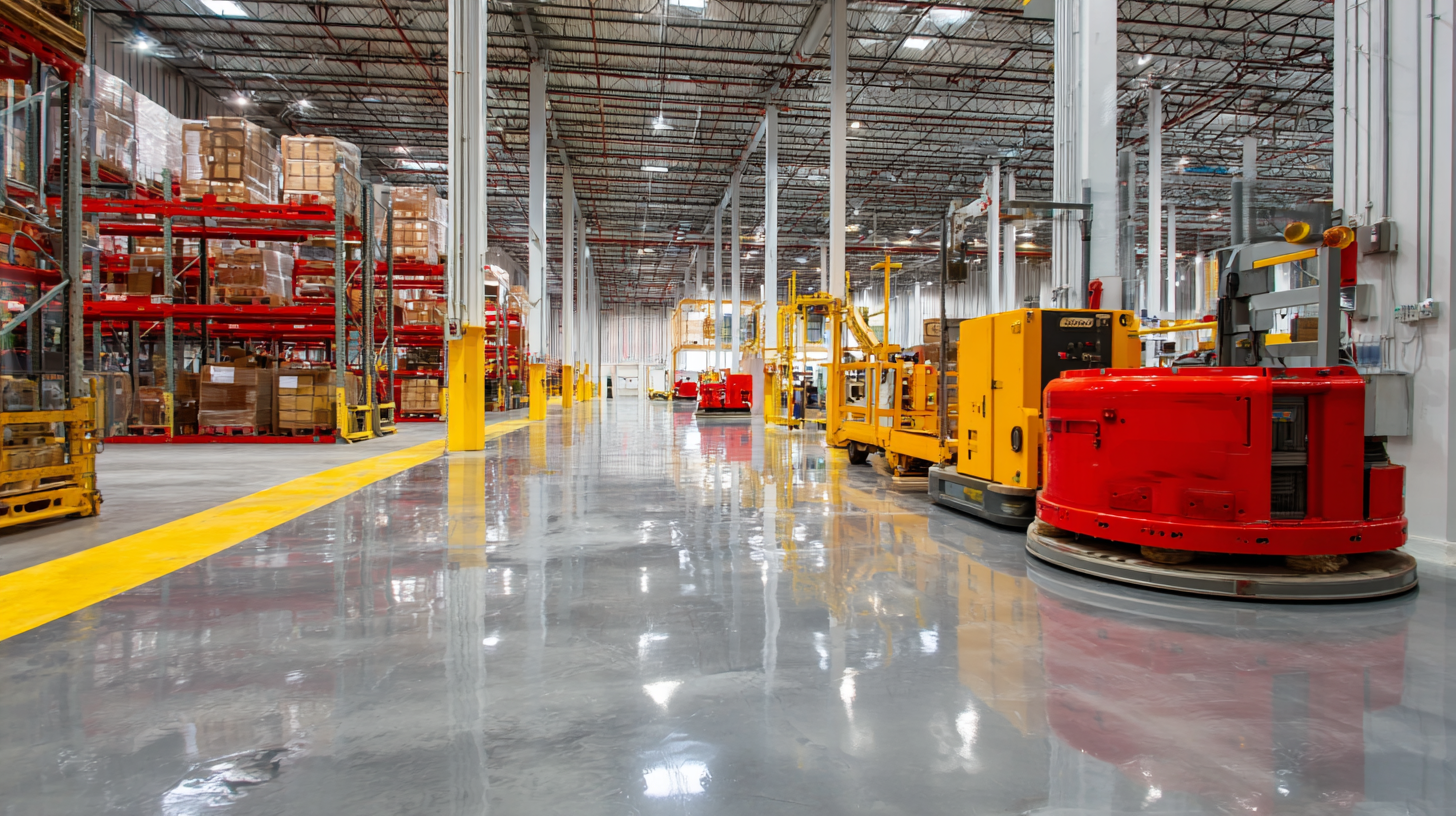
Selecting the right floor cleaner for your warehouse is crucial for maintaining a safe and productive environment. When evaluating different options, consider the specific materials of your flooring. Some cleaners may be more effective on concrete, while others could be better suited for tile or vinyl surfaces. Always check the manufacturer's recommendations to ensure compatibility and avoid any damage to your flooring.
Another essential factor is the type of dirt or contaminants that need to be addressed. For instance, if your warehouse deals with heavy grease or oil, look for a cleaner with strong degreasing properties. Additionally, consider the environmental impact of the cleaning products. Opt for biodegradable and non-toxic options whenever possible, as they are safer for both your employees and the planet.
Finally, ease of use and drying time are important aspects to keep in mind. Floor cleaners that require less scrubbing and have quicker drying times can greatly enhance efficiency in busy warehouse settings. Investing in high-quality equipment that simplifies the cleaning process can lead to better results and less downtime.
